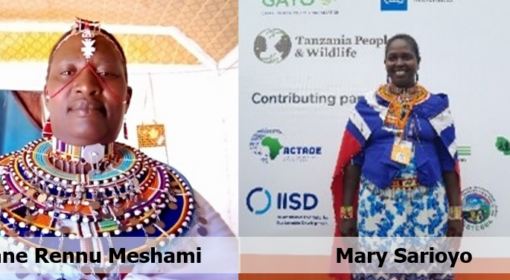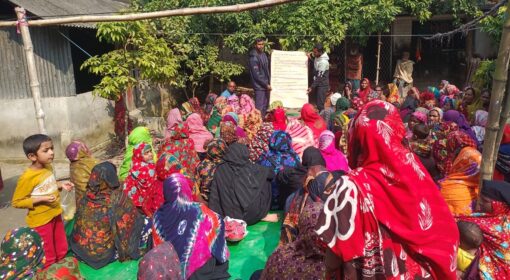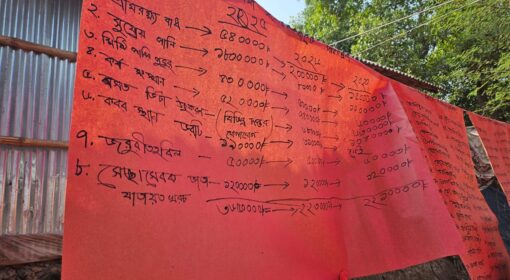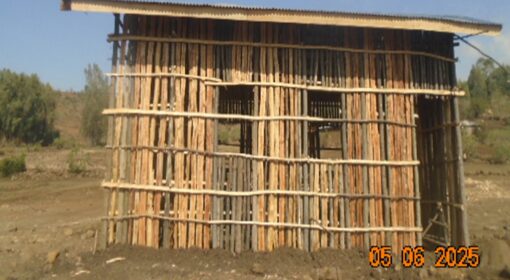By NGO IMPACT, Laura van Santen, Nancy Kadenyi & Femke van Woesik
This blog is part of a dossier on locally-led adaptation, featuring insights and lessons from the Reversing the Flow (RtF) program. RtF empowers communities in Bangladesh, Burkina Faso, Ethiopia, Kenya, and Sudan to build climate resilience through direct funding and a community-driven, landscape approach.
In Kenya, the local NGO IMPACT is facilitating RtF through its RESTORE initiative, which helps communities like Mayanat design and deliver their own solutions for climate resilience. This experience illustrates two powerful lessons. First, when projects end without clear handover or responsibility, communities are often left stranded, without the means to sustain or repair what was once provided. Second, when communities take the lead, they can do more than respond to problems; they can create new opportunities. In Mayanat, the locally led process has not only restored damaged infrastructure but sparked a vision for long-term self-reliance, including the training of local youth in pipeline maintenance and community-led land restoration.
The Mayanat community, spread across eight villages and home to around 3,000 people, faced two pressing challenges. First, the invasive prickly pear (Opuntia), a fast-spreading plant, was displacing the grass vital for their livestock. “Sixty percent of our land was taken over by opuntia” says Richard Legei, a community board member. “It even harms our animals”.
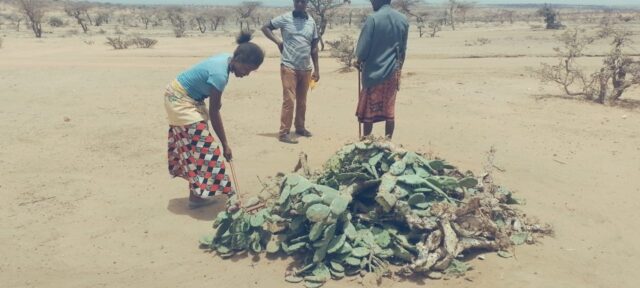
Second, the government-installed water pipeline from Mount Kenya, laid in 2021 to supply water to the interior, was damaged by erosion and the movement of elephants. Although the community repeatedly approached the government for support, there was no response. The project had officially ended, and without a clear handover or long-term responsibility assigned. This left the community stuck, with no operational or repair budget in place, and families without reliable access to clean drinking water. When their situation worsened, the community turned to IMPACT. Guided to RESTORE, they wrote a proposal for funding. Richard coordinated the process, but decisions were made collectively by a democratically chosen management board of one man, one woman, and one youth. Then they received 4.5 million shillings (~ 30.500 euros) from the RESTORE program: 3.5 million for the water pipeline and 1 million for combating the prickly pear.
Community members were hired to cut and clear the opuntia, receiving wages for their work. Once cleared, the restored land is open to all households for grazing.
For water access, the community prioritized three of the eight villages for pipeline repairs and extensions, based on collective agreement. Water meters were installed, and households pay a small fee for usage to fund future repairs. Higher fees apply for private connections near homes, an option in high demand. Technical experts were hired to lay the pipelines. The community made its own arrangements with these experts, budgeted for them, and paid them.
Richard hopes that in the future, the community will have its own technical experts and engineers. He mentions that young people are already interested in this. As of now, local youth were trained in basic pipeline maintenance to reduce dependence on external technicians. Through this Mayanat community experience, there is a clear vision for the future and hope that locally led projects can do more than just solve current problems: creating opportunities for the community. For example, training young people in pipeline maintenance enables the community to have its own pool of locally available experts and skilled personnel. This can lead to reduced costs and delays in waiting for external experts for support as well as having more skilled jobs for the youth. This makes it more resilient and a way of life than a project that would come and at some point reach an end.
Removing the prickly pear leads to healthier grassland, allowing the livestock to eat well and the community to sell their livestock to feed their families. As Richard says, “grass is healthy animals, which leads to milk and more cows to sell.” Repairing the pipelines has improved access to drinking water, reducing the distance women must walk and improving water quality.
The approach has united and strengthened the community. Members who have moved away due to poor conditions can return. Richard emphasizes that the community feels ownership of the project. In his words, “we own the project.” The RESTORE project has had a significant positive impact, and members donate time and labor to help with the implementation. This makes the project much more successful. Richard notes that RESTORE projects are executed faster and generate more involvement than traditional projects. He mentions that those projects are more “owned” by the funder.
